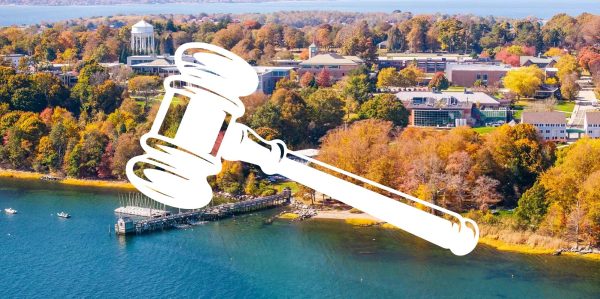Raising Environmental Awareness in R.I.
Gubernatorial elections are rapidly approaching, raising concerns and awareness among communities, especially in Bristol. The town is made up of 50 percent water, and is increasingly relying on renewable resources with the rest of the state.
Being the only state to have an offshore wind farm, Rhode Island not only provides power to over 200,000 homes with this resource alone but it also creates over 800 jobs to its citizens.
Although there have been environmental improvements in Rhode Island, there are also topical issues that the 2018 political candidates are discussing.
“Things like deep water wind, which we already have, is a positive step. We are seeing this come out locally and I would like to see Rhode Island politicians take the lead on this,” said Joseph Roberts, associate professor of politics and international relations at Roger Williams University. “I think we can push it not only from an environmental perspective but from an economic perspective.”
The Burrillville Power Plant is something that is a prominent point of discussion among the campaigns. The plant proposal raised controversy across Rhode Islanders while some citizens believe that the project raises many unanswered questions about the potential harm.
“Anything coal fired is horrible, it should have gone away a decade ago. But, when it goes away, we need something to replace it,” said Roberts. “Diesel is not the way to do it either. Wind and solar power are much better options long term. I think the technology is improving.”
Environmentalists are shifting away from coal, a nonrenewable energy form that has caused significant pollution to the air.
“Air quality has increased,” said Stephen O’Shea, environmental chemistry professor at RWU. “When you look at the national testing of air standards, the actual levels of nitrogen, oxides and sulfur are going down in the ozone because there isn’t a burning of sulfurous coal.”
Democratic gubernatorial candidate Gina Raimondo campaigns for new and efficient environmental opportunities, while working to plan ahead for the impact that sustainability will make on the Ocean State. Her goal is to make Rhode Island’s energy system ten times cleaner by 2020.
In the past, Raimondo has shown her opinion toward environmental changes for Rhode Island. In summer 2017, President Donald Trump withdrew from the Paris Climate Agreement, which dealt with greenhouse-gas-emissions mitigations, adaptation and finances. Immediately, Raimondo not only entered Rhode Island into the United States Climate Alliance which works to reduce greenhouse emissions, but she went straight to Washington D.C. to state her opinion on Trump opening Rhode Island’s shoreline to oil exploration and drilling.





